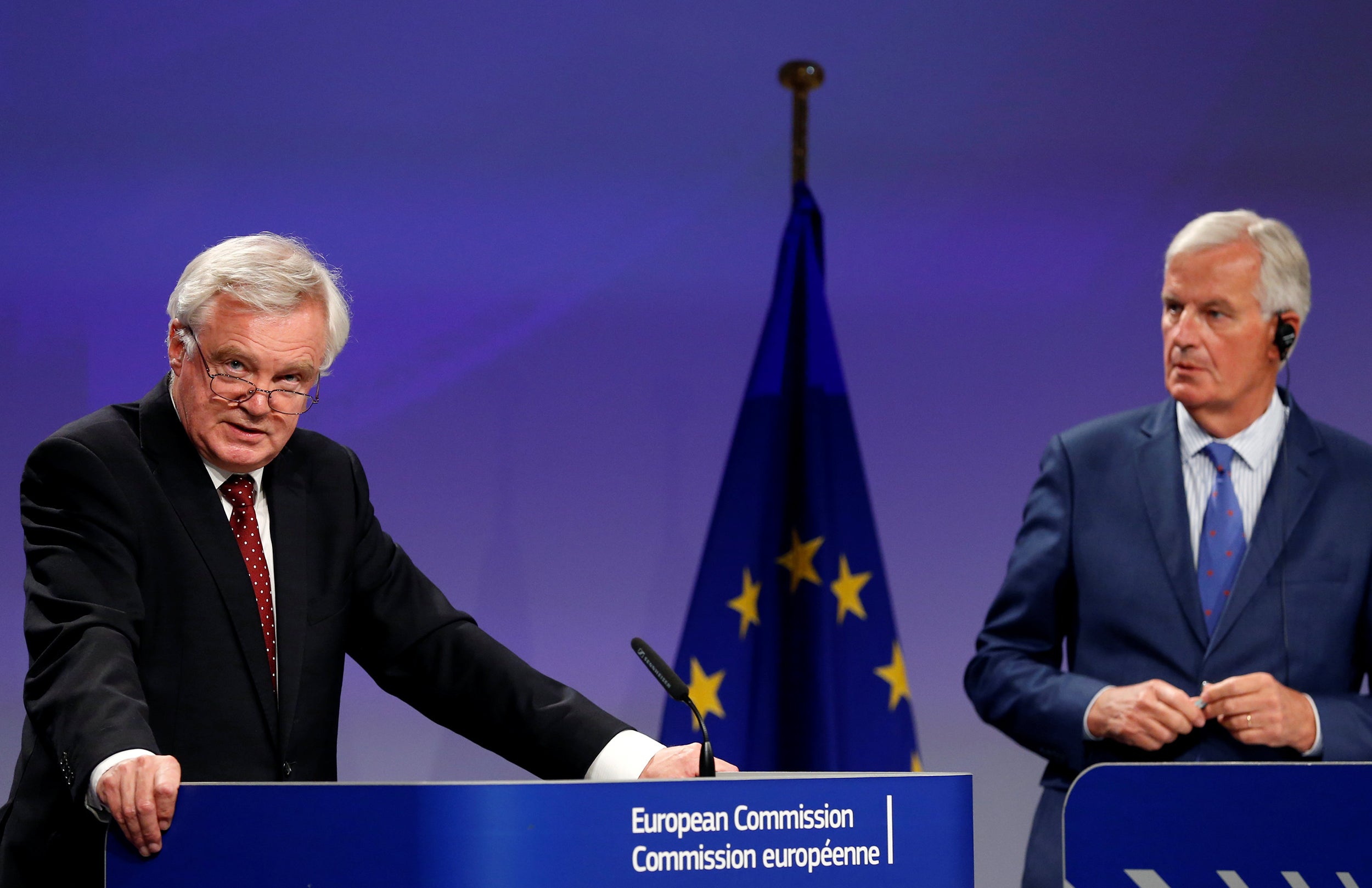Brexit: David Davis admits ministers are exploring whether formal action is needed to take UK out of single market
Brexit Secretary considering whether Britain has to formally notify other countries of intention to leave the European Economic Area

Your support helps us to tell the story
From reproductive rights to climate change to Big Tech, The Independent is on the ground when the story is developing. Whether it's investigating the financials of Elon Musk's pro-Trump PAC or producing our latest documentary, 'The A Word', which shines a light on the American women fighting for reproductive rights, we know how important it is to parse out the facts from the messaging.
At such a critical moment in US history, we need reporters on the ground. Your donation allows us to keep sending journalists to speak to both sides of the story.
The Independent is trusted by Americans across the entire political spectrum. And unlike many other quality news outlets, we choose not to lock Americans out of our reporting and analysis with paywalls. We believe quality journalism should be available to everyone, paid for by those who can afford it.
Your support makes all the difference.David Davis has admitted ministers are exploring whether formal notice will be needed to take the UK out of Europe’s single market.
The Brexit Secretary said the Government was considering “for clarity purposes” if Britain would be required to formally notify other countries of its intention to leave the European Economic Area (EEA), despite previous insistences that membership would end automatically after Brexit.
Mr Davis also ruled out a Norway-style arrangement where Britain would join the European Free Trade Agreement (Efta) during the transition period, as it would be subject to requirements such as freedom of movement.
The Independent revealed last month that Britain could face a battle in the international courts if it pulled out of the EEA without giving formal notice to other members, as required by international agreement.
Mr Davis told MPs during Brexit questions in the Commons: “The UK is party to the EEA agreement in its capacity as an EU member state, so on on exit day the EEA agreement will cease to operate in respect to the UK.
“It will no longer have any practical relevance to the United Kingdom.
“We are considering what steps, if any, we might need to take to formally confirm our withdrawal from the EEA agreement, as a matter of international law.”
Labour MP Stephen Kinnock led calls for a parliamentary vote on leaving the EEA due to the “fundamental, constitutional, political, legal and economic importance” of such a move.
His concern was echoed by Liberal Democrat Brexit spokesman Tom Brake, who accused Mr Davis of “throwing our best cards away”.
He said: ”The decision to trigger Article 127 and leave the EEA must be subject to a parliamentary vote.
“This will ensure MPs have a chance to stand up Britain’s prosperity and vote to stay in the single market.
“Anything less would make a mockery of David Davis’s claim to be standing up for parliamentary sovereignty.”
However, the Brexit Secretary dodged questions about a Commons vote, replying: “There is actually agreement that when the UK ceases to be a member of the EU, the EEA agreement will no longer operate in respect to the UK.
“As such the Government’s legal position is clear – Article 127 does not need to be triggered for the agreement to cease to have effect but we are looking at it just to make sure, for clarity purposes.”
Countries such as Norway, Iceland and Liechtenstein are members of the EEA, as well as the EU member states, with all accepting free movement of citizens.
Mr Davis said the Government had previously ruled out staying in Efta as a temporary measure.
He said: “The simple truth is membership of Efta would keep us within the acquis [EU law] and it would keep us within requirements for free movement, albeit with some limitations, but none of those have worked so far.
“So in many ways it’s the worst of all outcomes.
“We did consider it, I gave it some considerable thought maybe as an interim measure, but it seemed to me to be more complicated, more difficult and less beneficial.”
Join our commenting forum
Join thought-provoking conversations, follow other Independent readers and see their replies
Comments